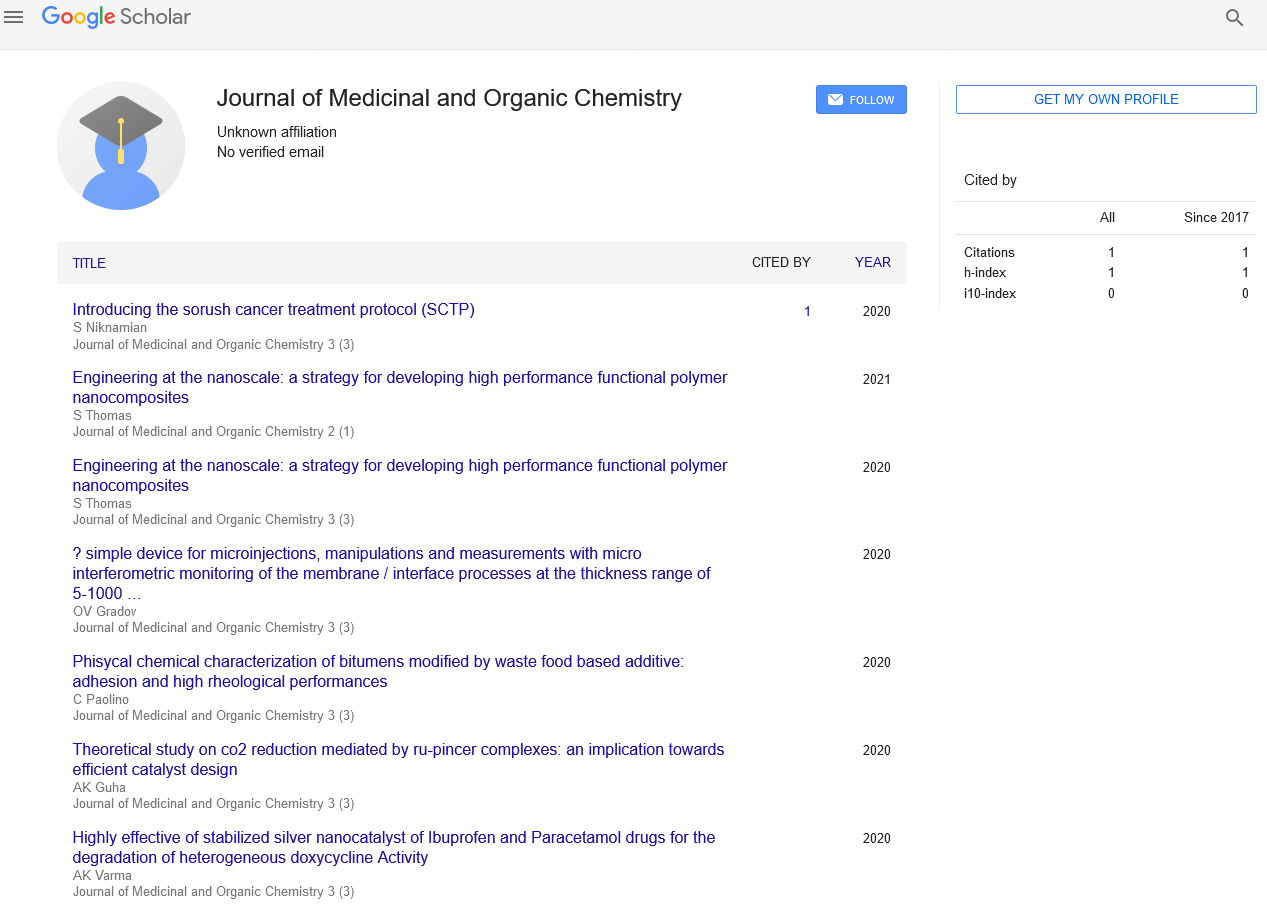Perspective - Journal of Medicinal and Organic Chemistry (2024) Volume 7, Issue 3
Nourishing the Body, Fueling the Future: A Comprehensive Exploration of Nutrition
- Corresponding Author:
- Alka Garnier
Department of Nutritional Science,
Nancy University,
Paris,
France
E-mail: alka.garnier@chu-nantes.fr
Received: 04-May-2024, Manuscript No. jmoc-24-134119; Editor assigned: 08-May-2024, PreQC No. jmoc-24-134119 (PQ); Reviewed: 22-May-2024, QC No. jmoc-24-134119; Revised: 07-Jun-2024, Manuscript No. jmoc-24-134119 (R); Published: 14-Jun-2024, DOI: 10.37532/jmoc.2024.7(3).207-208
Introduction
Nutrition serves as the cornerstone of health and well-being, providing the essential nutrients that fuel our bodies and sustain life. From the foods we eat to the beverages we drink, every dietary choice we make influences our physical, mental, and emotional vitality. In this article, we embark on a journey through the multifaceted realm of nutrition, delving into its foundational principles, dietary components, and profound impact on human health and longevity.
Description
The fundamentals of nutrition
At its core, nutrition encompasses the intake of food and its subsequent utilization by the body for growth, maintenance, and energy production. The macronutrients-carbohydrates, proteins, and fats-serve as the primary sources of energy, providing the fuel needed to power physiological processes and sustain life. In addition to macronutrients, micronutrients such as vitamins and minerals play crucial roles in supporting immune function, bone health, and metabolism, among other functions.
Carbohydrates: The body’s preferred fuel source
Carbohydrates serve as the body’s primary source of energy, providing fuel for vital functions such as brain activity, muscle contraction, and cellular metabolism. Found in foods such as grains, fruits, vegetables, and legumes, carbohydrates are broken down into glucose-a simple sugar that can be readily utilized by cells for energy. While complex carbohydrates, such as whole grains and starchy vegetables, provide sustained energy release and fiber, simple carbohydrates, such as table sugar and sugary beverages, can lead to rapid spikes in blood glucose levels and may contribute to metabolic disorders when consumed in excess.
Proteins: Building blocks of life
Proteins are essential macronutrients that play critical roles in building and repairing tissues, synthesizing hormones and enzymes, and supporting immune function. Composed of amino acids, proteins are found in a wide range of foods, including meat, poultry, fish, dairy products, legumes, nuts, and seeds. While some amino acids can be synthesized by the body, others-known as essential amino acids must be obtained from the diet. Consuming a variety of protein sources ensures adequate intake of all essential amino acids, supporting muscle growth, repair, and overall health.
Fats: Essential for health and vitality
Fats, also known as lipids, are a concentrated source of energy that play essential roles in cellular structure, hormone synthesis, and nutrient absorption. While dietary fat has long been vilified for its association with cardiovascular disease, not all fats are created equal. Unsaturated fats, found in foods such as avocados, nuts, seeds, and olive oil, have been shown to promote heart health and reduce the risk of chronic diseases when consumed in moderation. In contrast, trans fats and excessive intake of saturated fats, found in processed foods and animal products, have been linked to adverse health outcomes and should be limited in the diet.
Nutrition and disease prevention
Mounting evidence suggests that dietary patterns play a significant role in the prevention and management of chronic diseases such as obesity, diabetes, cardiovascular disease, and certain types of cancer. Adopting a balanced diet rich in fruits, vegetables, whole grains, lean proteins, and healthy fats can help reduce the risk of developing these conditions and promote long-term health and well-being. Furthermore, lifestyle factors such as physical activity, stress management, and adequate sleep complement dietary choices in maintaining optimal health and preventing chronic disease.
The importance of nutritional education
Despite the wealth of information available on nutrition and health, misconceptions and misinformation abound, leading to confusion and frustration for many individuals seeking to make informed dietary choices. Nutritional education plays a crucial role in empowering individuals to navigate the complex landscape of nutrition, enabling them to distinguish between fad diets and evidence-based recommendations, and make choices that support their health and well-being.
Future directions in nutrition research
As our understanding of nutrition continues to evolve, so too do the avenues of research aimed at elucidating the complex interactions between diet, genetics, and environmental factors in shaping health outcomes. Emerging areas of interest include personalized nutrition, which tailors dietary recommendations to an individual’s unique genetic makeup, microbiome composition, and metabolic profile, as well as the role of nutrition in brain health, aging, and longevity.
Conclusion
Nutrition stands as a cornerstone of health and vitality, providing the essential building blocks and energy needed to fuel our bodies and sustain life. From macronutrients such as carbohydrates, proteins, and fats to micronutrients such as vitamins and minerals, every dietary choice we make influences our well-being and longevity. By adopting a balanced diet rich in nutrientdense foods and embracing lifelong habits that promote health and wellness, we can empower ourselves to live vibrant, fulfilling lives and thrive in an ever-changing world.

